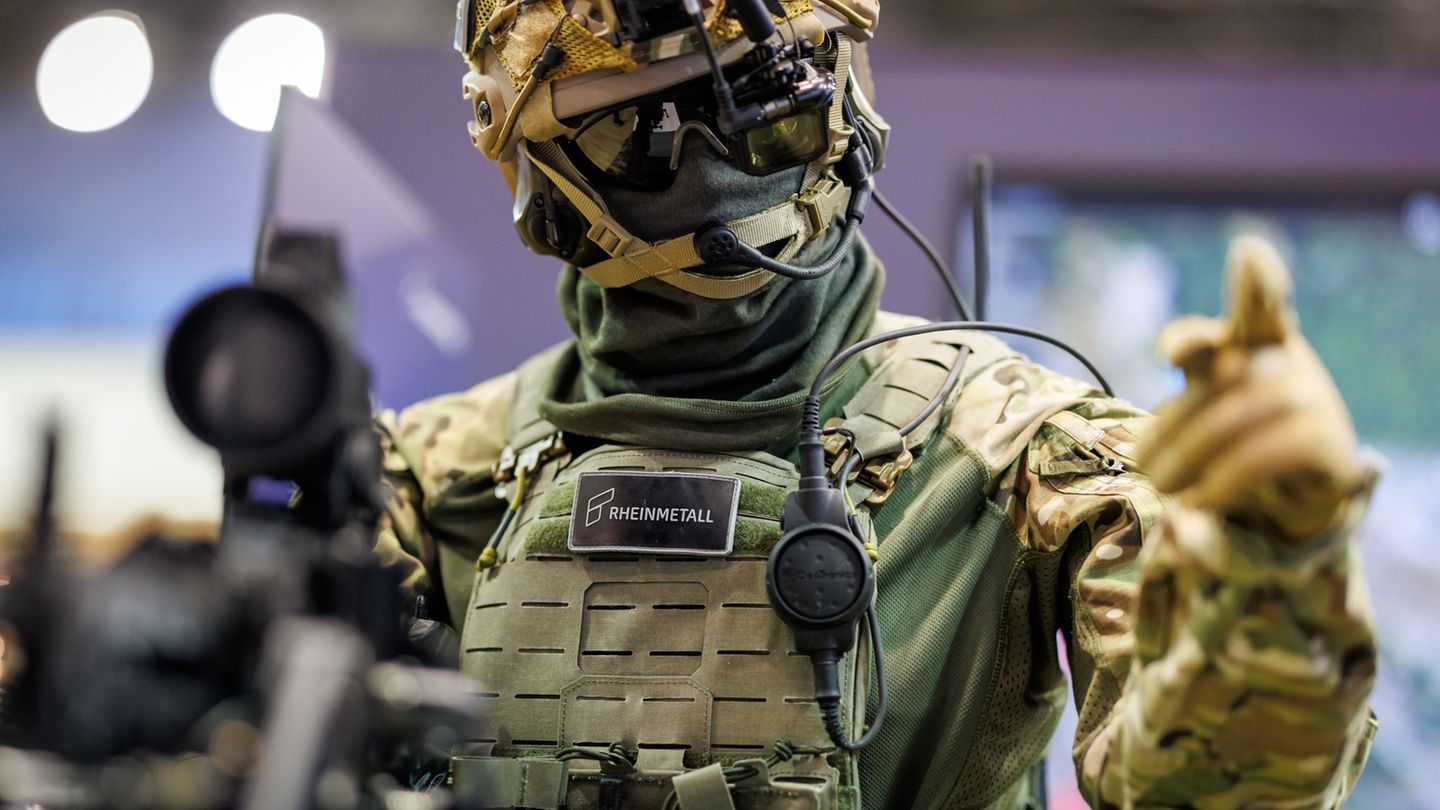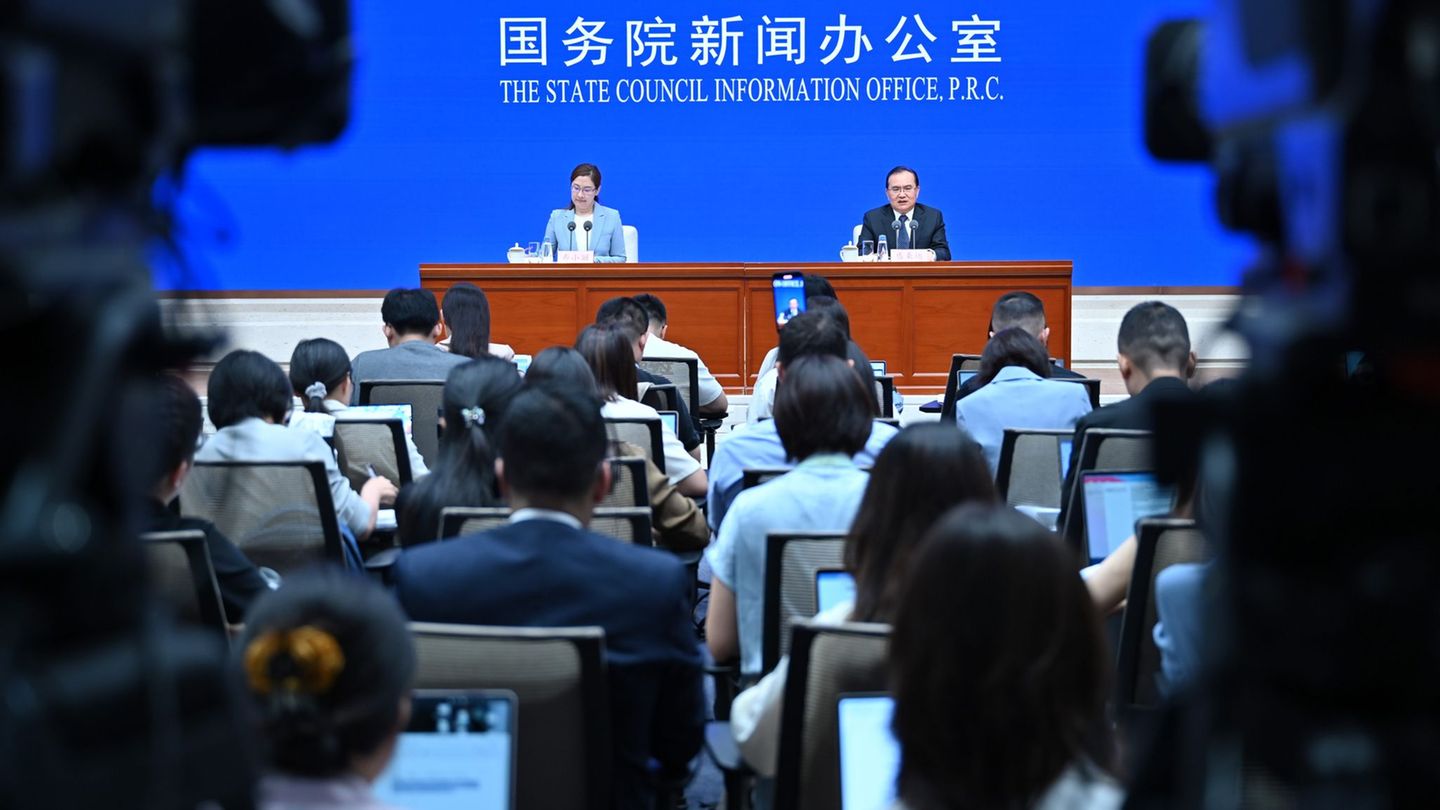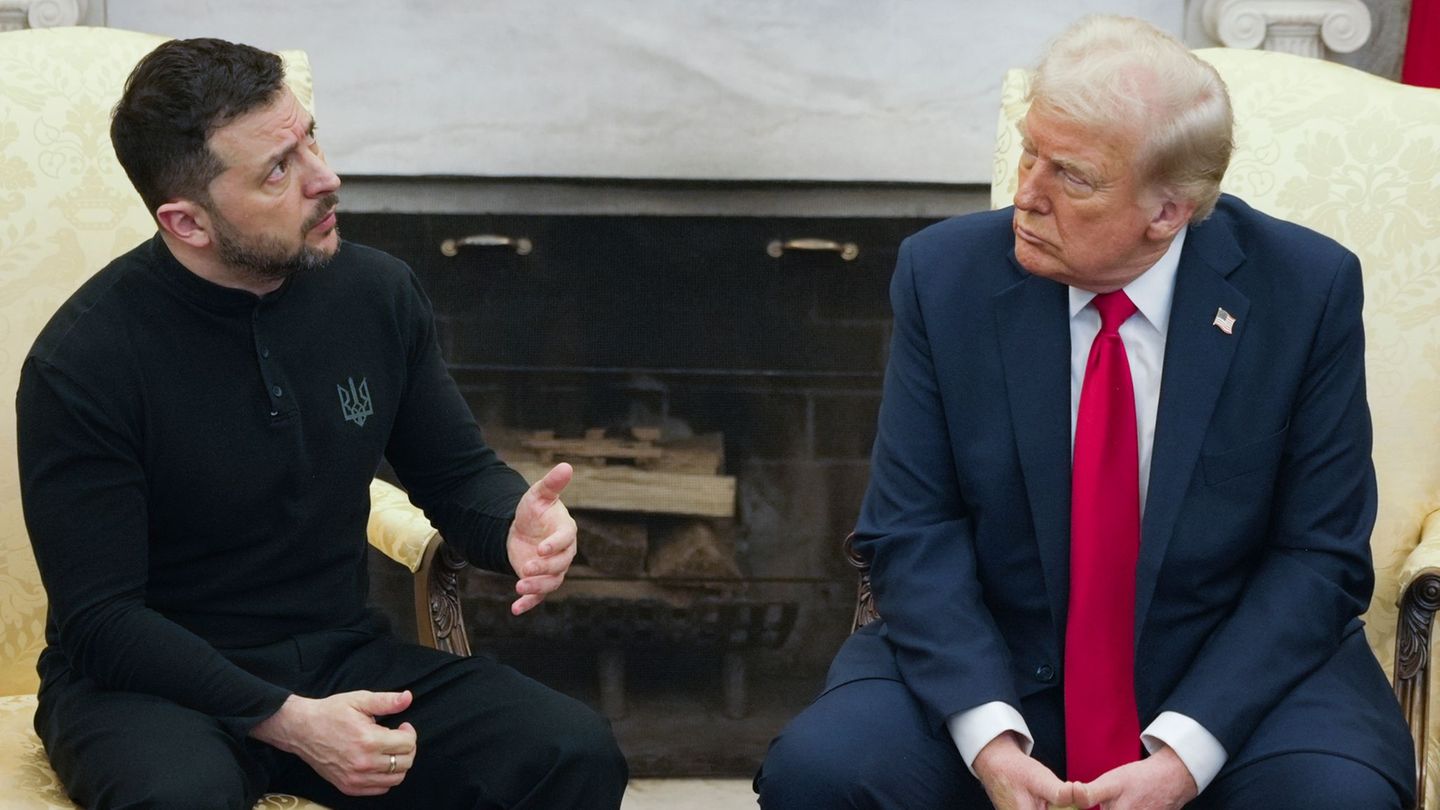Booming
Rheinmetall share costs ten times more than before Ukraine War
Copy the current link
Add to the memorial list
Weapon companies? Didn’t have a good image for a long time. In the meantime, this has changed from the point of view of many people: weapons are necessary to defend. Armors on the stock exchange are extremely popular.
The share price of Germany’s largest weapon smithy has been tenfold since the beginning of the Ukraine war. On February 23, 2022, a share certificate of the weapon smithy was still worth 96.8 euros, the paper was traded on Wednesday afternoon in Xetra trading for 968 euros for euros.
Rheinmetall produces tanks, military trucks, artillery, aircraft guns and ammunition-i.e. armaments goods that are urgently needed in the Ukraine war. The company delivers weapons to the country attacked by Russia, and it also benefits from the increased demand from NATO countries that feel threatened by Russia and therefore invest more in defense. The Rheinmetall product portfolio also includes special infantry combat equipment with digital components.
Order books are packed
The armaments group does significantly more business than before. In the fourth quarter of 2021 it was around 1.8 billion euros, sales reached around 2.5 billion euros in the third quarter of 2024. The company is presenting more recent figures for last year in mid -March.
The steep growth course can be recognized even better by the full order books: the “backlog”, which, in addition to the order stock, also includes the expected calls from long -term framework contracts and the potential in other shops, was 24.5 billion euros at the end of 2021. In autumn 2024 it was almost 52 billion euros, and the trend is rising.
Rheinmetall has expanded its production capacities in order to be able to serve the increasing demand. The largest work is in Lower Saxony Lower Saxony, where tanks and ammunition are produced.
After the end of the Cold War, the federal government bought fewer weapons from the domestic armaments industry, then Rheinmetall reinforced its foreign business with NATO countries and NATO-friendly states, such as Australia. That has changed a bit in the past three years: The Ukraine War was, so to speak, a warning shot for the federal government to order more again from home weapons.
Rheinmetall was able to secure a considerable part in the federal special fund of the federal government, which was launched in 2022 in 2022. Since an Union-led federal government will most likely be in defense than currently planned, Rheinmetall can continue to hope for extra orders in the future. The company was already able to secure billions of orders for ammunition and the overdue digitization of the Bundeswehr.
Another growth driver is the announcement by US President Donald Trump that Europe will have to take care of its security in the future-this is also why the EU countries will have to invest significantly more money in their ability to defend it than before.
There is “a turning point 2.0,” says an industry expert who does not want to be named. “The Americans withdraw and Europeans urgently have to modernize their dilapidated armies and increase the arms: they have to buy, buy, buy.” The EU countries wanted to rely more on the domestic armaments industry in order to reduce dependence on the US arms industry, said the expert. Rheinmetall and other European armaments companies also play this in the cards.
Despite the significantly increased stock market course in Rheinmetall, some financial analysts still see room for improvement, the LBBW recently raised the price target for the German group from 870 to 1200 euros. Other experts are more defensive in their assessment. Armors such as the electronics specialist Hensoldt and the gearbox builder Renk are also on the stockings on the stock exchange.
Suppliers vie to orders from the weapon industry
In the waters of the armaments boom, other companies that have so far have no or only little business with the weapon industry are trying to participate in the positive economic development. Some engineering offices that previously only worked for the car industry are also applying for orders from armaments companies.
So far, the Cologne -based company Deutz has mainly manufactured engines for cranes, lifting platforms, agricultural machinery, forklifts and other civilian applications. The scope of its business as a armaments supplier is small: a Polish troop van has a Deutz engine, some tanks also have a Deutz aid engine. It is quite possible that the company will also manufacture main motors for the steel colossi in the future. “Defense is a growth field in which we can do much more with our product portfolio,” said Deutz.
The laser specialist Trumpf from Ditzingen (Baden-Württemberg) is considering whether he should “open defense policy applications with his laser technology”. For trumps, business with the armaments industry would be new territory. Trump boss Nicola Leibinger-Kammüller emphasizes that it would be “not the turn of the time of the values-but the evolution of our social responsibility”.
“Rheinmetall is very much in demand, even on the supply side,” says the group. “Suppliers often contact us who now want to reorient themselves from the automotive sector in the direction of the defense industry.” However, the requirements in the military area differ very clearly from those of the auto industry. Because of special requirements, you have to select closely when shopping. “Since we have also significantly expanded our own manufacturing capacities, external applicants are often out of the question, especially for manufacturing orders.”
dpa
Source: Stern




